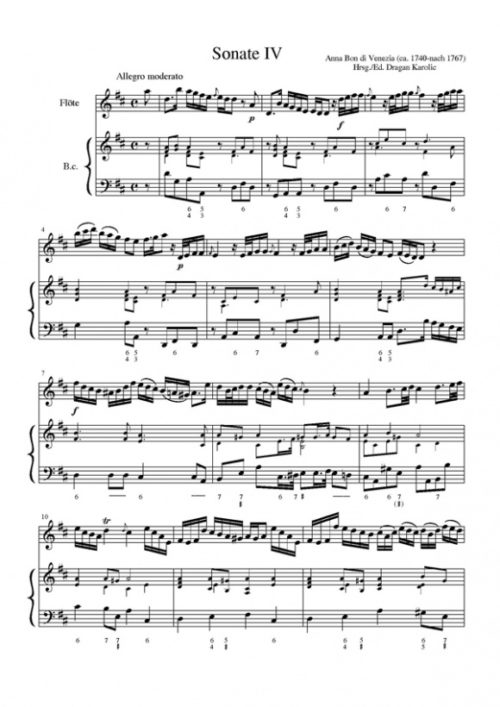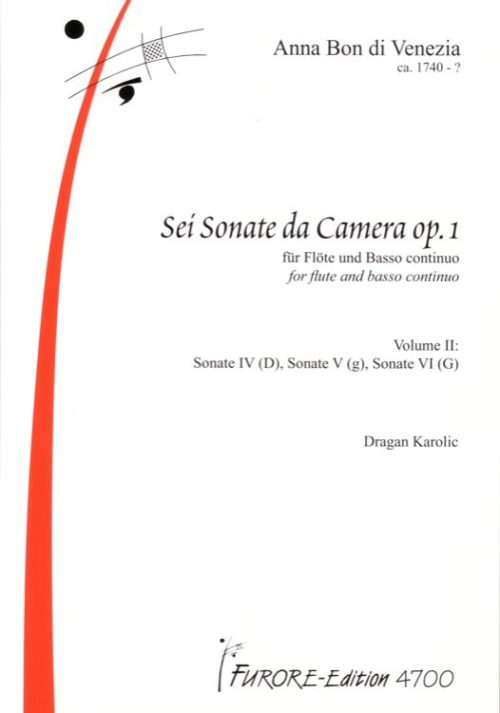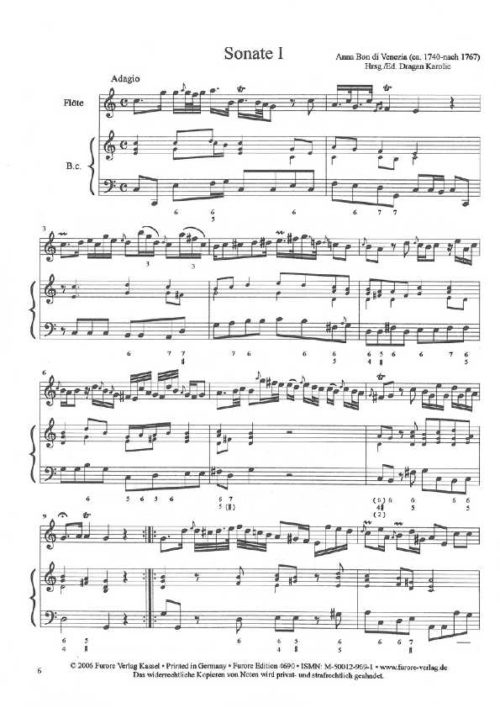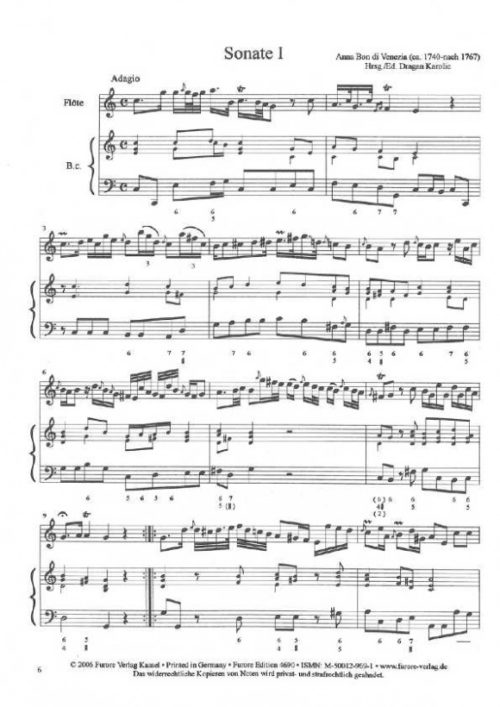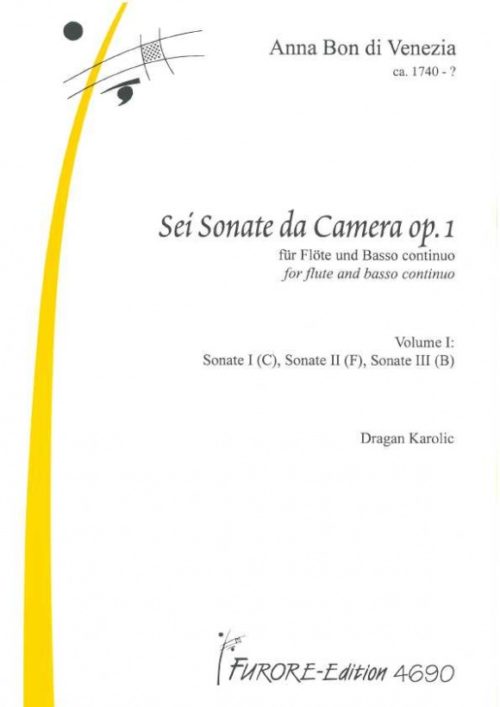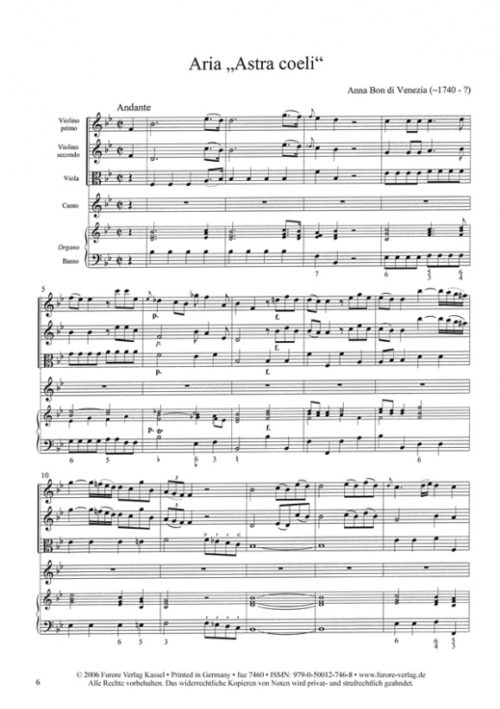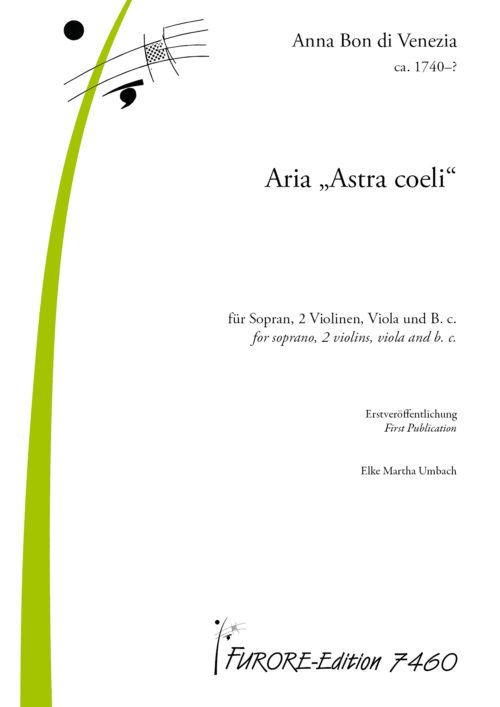Anna Bon is a fascinating composer among women artists in the 1700’s. Among the rarity of women composers, Anna Bon is an enigma because not much is known of her. If the addition to her name “di Venezia” indicating her birthplace sticks to speculation, because no document about her place and date of birth has been found yet. She was the daughter of the famous architect, scenographer, and Venetian painter Girolamo Bon and the Bolognese singer Rosa Ruvinetti, who were both linked to the court of Friedrich the Great of Prussia. Anna’s father, Girolamo, stayed in Germany in 1746, first in Berlin and then in Dresden, then went to Potsdam at the court of Frederic of Prussia in 1750. In 1756, he went to Bayreuth where he was a professor of architecture and prospectives at the “Academy of Fine Arts”. Her mother Rosa Ruvinette (di Bologna) was a singer at the court of Frederic between 1748 and 1752.
At the age of 16, Anna was appointed as court musician to Friedrich, vice-count of Brandenburg-Bayreuth and his wife, Wilhelmine of Bayreuth, a composer herself and a sister of Friedrich the Great. Anna was “virtuosa di musica da camera” in 1756 – this is written on the frontpieces of the “VI Sonate da Camera per il flauto Traversiere Violoncello o Cembalo” – opera prima. Anna Bon’s first mentioned publication was dedicated to the vice-count who was an experienced flutist. These sonatas were presumably submitted as part of an application for the position of a harpsichordist at the court of the margaravine Wilhelmine of Bayreuth, in whose service she was later employed. Further works appeared in print: “Sei Sonate per il Cembalo” (opus 2), which were dedicated to Ernestina Augusta Sophia Princess of Weimar, in 1757 and in 1759 “Sei Divertimenti a due Flauti e Basso” (opus 3) dedicated to the elector of Mannheim Karl Theodor. This dedication indicates that she was looking for a new sphere of activity. Dependend on the beginning of the Seven Years’ War in 1756 and the death of Wilhelmine of Bayreuth in 1758 there most probably was a decrease of concerts at the court of Bayreuth.
In 1762 the Bon family found employment at the court of Prince Esterházy, where Josef Haydn was Kapellmeister. Anna Bon and her mother Rosa were engaged as singers, her father Girolamo as a set designer. It is known for a fact that Anna Bon lived there until 1765. By 1767 Anna Bon, now married to a tenor “chamber singer” by the name of Mongeri, was presumably living at the court of Hildburghausen in Thuringia. This was the residence of Princess Ernestine Auguste of Sachsen-Hildburghausen, who already knew Anna Bon from her time in Bayreuth. There is no record of the whereabouts of Anna Bon after 1767.
-


fue 11025
pian é forte. Music for piano
Anna Bon di Venezia Barbara Heller Cécile Chaminade Emilie Zumsteeg Fanny Hensel, geb. Mendelssohn Florentine Mulsant Hope Lee Ljubica Maric Louise Farrenc Maria Hester Park Maria Szymanowska Mel(anie) Bonis Ruth Schonthal Sibylle Pomorin Viera Janárceková Vivienne Olive

